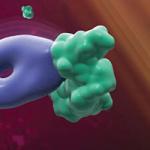
Research Topics
Cardiovascular disease (CVD) is a common chronic disease caused by atherosclerosis that often first starts in childhood. In the United States, one person dies from CVD every 33 seconds, amounting to approximately 2,580 deaths per day. In 2022, an estimated 3.65 million deaths occurred worldwide due to cardiovascular disease.
Excess circulating cholesterol in the blood is one of the main drivers of atherosclerosis, which is the deposit of excess cholesterol into the arterial wall. Cholesterol, however, plays a vital role in normal cellular processes; hence, its cellular and whole-body distribution is subject to complex, dynamic regulation by circulating lipoproteins and enzymes. Dr. Remaley’s laboratory seeks to better understand lipoprotein metabolism and to translate new insights gained from basic biochemistry, cell biology, animal models and clinical trials into much needed clinical advances in the diagnosis, treatment and prevention of cardiovascular disease.
One focus of Dr. Remaley’s laboratory is on the beneficial role of high-density lipoprotein (HDL), the so-called “good cholesterol.” HDL, which is a complex of the protein apoA-I with phospholipids, removes excess cholesterol from peripheral tissues, such as the arterial wall, and transports it to the liver and intestine for excretion from the body. It has been shown that this process—the reverse cholesterol transport pathway—can be markedly stimulated by infusing HDL made with either purified or recombinant apoA-I and phospholipids. HDL infusion has been proposed as an acute therapy for patients with acute coronary syndrome who are at imminent risk for developing myocardial infarction. His laboratory has developed small synthetic peptide mimetics of apoA-I, and like the full-length protein, these peptides mobilize excess cholesterol from cells and have been shown to reduce atherosclerosis and inflammation in animal models and are currently being tested by his group in early-stage clinical trials.
Dr. Remaley’s laboratory also investigates “bad cholesterol”, in other words cholesterol that is transported on low-density lipoproteins (LDL). The deposition of LDL into the vessel wall is one of the main drivers of atherosclerosis, the underlying pathogenic process that leads to cardiovascular disease. Using CRISPR-Cas9 screening, his laboratory has identified new genes related to the cellular uptake of LDL. His group has also recently solved the structure of LDL and how it binds to its receptor using cryo-electron microscopy (cryoEM), which may lead to new therapeutic strategies for lowering LDL.
Another focus of the Lipoprotein Metabolism Laboratory is the development of new cardiovascular biomarkers. The lab has pioneered a method for calculating LDL cholesterol, which is now widely used in clinical laboratories worldwide for routine diagnostics of hypercholesterolemia.
In Dr. Remaley’s view, it is a privilege to work at the NIH and to have the opportunity to study and learn from patients at the NIH with both common and rare genetic disorders of cholesterol metabolism. It often leads to new insights that cannot be obtained in any other manner and inspires him and his co-workers to translate their basic science findings in lipoprotein metabolism into new therapies and diagnostic tests for cardiovascular disease.
Biography
Dr. Remaley is the section chief of the Lipoprotein Metabolism Laboratory in the Translational Vascular Medicine Branch of the National Heart, Lung, and Blood Institute (NHLBI) in Bethesda, Maryland. He is also a senior staff member of the Department of Laboratory Medicine at the National Institutes of Health Clinical Center.
Dr. Remaley received his BS in biochemistry and chemistry from the University of Pittsburgh in 1981. In 1987, he received an MD and PhD (biochemistry) from the University of Pittsburgh and completed in 1990 a residency in clinical pathology at the University of Pennsylvania. He did a post-doctoral fellowship with Dr. Bryan Brewer at NHLBI from 1990 to 1995.
He has been the recipient of many awards for his research and reached the rank of Captain in the United States Public Health Service before he joined the civil service in 2014. He has published more than 500 papers in the field of lipoprotein metabolism and cardiovascular disease. In addition, he is an inventor on multiple patents related to new therapeutic agents and diagnostic tests for cardiovascular disease.
The central focus of Dr. Remaley’s research is lipoprotein metabolism and its role in cardiovascular disease. As a physician-scientist, he uses a multidisciplinary approach to translate basic science findings into new therapies or diagnostics.
Selected Publications
- Vickers KC, Palmisano BT, Shoucri BM, Shamburek RD, Remaley AT. MicroRNAs are transported in plasma and delivered to recipient cells by high-density lipoproteins. Nat Cell Biol. 2011;13(4):423-33.
- Amar MJ, D'Souza W, Turner S, Demosky S, Sviridov D, Stonik J, Luchoomun J, Voogt J, Hellerstein M, Sviridov D, Remaley AT. 5A apolipoprotein mimetic peptide promotes cholesterol efflux and reduces atherosclerosis in mice. J Pharmacol Exp Ther. 2010;334(2):634-41.
- Sethi AA, Stonik JA, Thomas F, Demosky SJ, Amar M, Neufeld E, Brewer HB, Davidson WS, D'Souza W, Sviridov D, Remaley AT. Asymmetry in the lipid affinity of bihelical amphipathic peptides. A structural determinant for the specificity of ABCA1-dependent cholesterol efflux by peptides. J Biol Chem. 2008;283(47):32273-82.
- Remaley AT, Thomas F, Stonik JA, Demosky SJ, Bark SE, Neufeld EB, Bocharov AV, Vishnyakova TG, Patterson AP, Eggerman TL, Santamarina-Fojo S, Brewer HB. Synthetic amphipathic helical peptides promote lipid efflux from cells by an ABCA1-dependent and an ABCA1-independent pathway. J Lipid Res. 2003;44(4):828-36.
- Remaley AT, Rust S, Rosier M, Knapper C, Naudin L, Broccardo C, Peterson KM, Koch C, Arnould I, Prades C, Duverger N, Funke H, Assman G, Dinger M, Dean M, Chimini G, Santamarina-Fojo S, Fredrickson DS, Denefle P, Brewer HB Jr. Human ATP-binding cassette transporter 1 (ABC1): genomic organization and identification of the genetic defect in the original Tangier disease kindred. Proc Natl Acad Sci U S A. 1999;96(22):12685-90.
Related Scientific Focus Areas




Molecular Biology and Biochemistry
View additional Principal Investigators in Molecular Biology and Biochemistry

This page was last updated on Tuesday, March 3, 2026